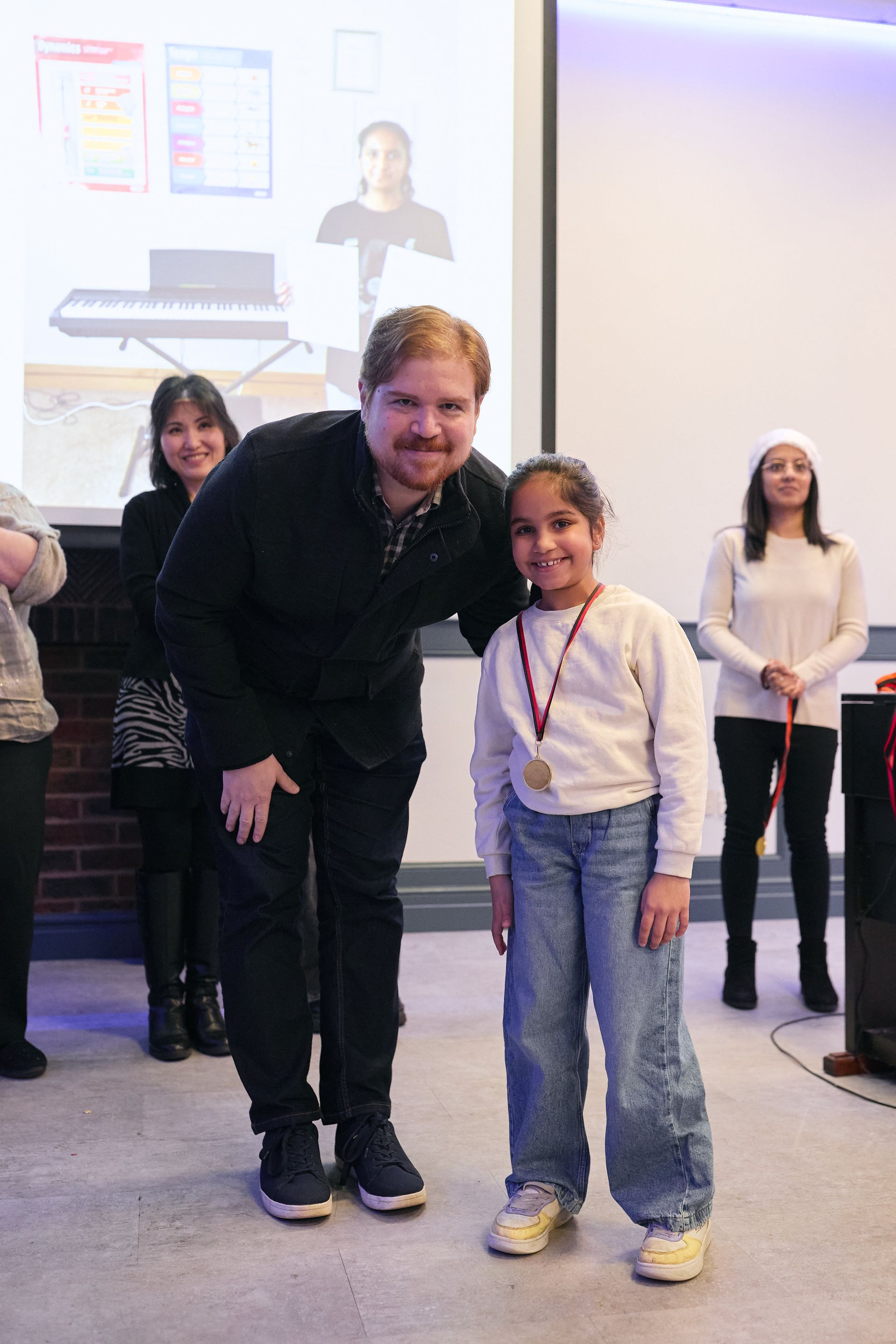The Benefits of 121 Piano Lessons
Are you considering starting 1-2-1 piano lessons? One-on-one piano lessons offer a number of unique benefits that group lessons or online classes may not provide. Here's why they could be the best fit for your child:
1. Individualized Attention
With 1-on-1 lessons, the teacher is focused solely on your child’s needs. Every student learns at a different pace, and personalized lessons allow the teacher to tailor the instruction to your child’s abilities. Whether it’s focusing on challenging pieces or offering extra support with music theory, your child will receive lessons designed specifically for their growth.
2. Customized Learning Pace
One of the key benefits of private piano lessons is that the teacher can adapt to your child’s learning speed. In a group setting, some students may feel rushed, while others might become disengaged if the pace is too slow. In a 1-on-1 environment, students’ progress at their own rate, ensuring they grasp concepts fully before moving on. This individualized pacing builds confidence and helps avoid frustration.
3. Deeper Musical Exploration
Private lessons give the student more time to dive deep into aspects of music that interest them. If your child enjoys classical music, jazz, or even composing their own songs, the teacher can incorporate these interests into the curriculum. This flexibility can inspire students and make their learning experience more enjoyable.
4. Immediate Feedback and Correction
When a student is learning the piano, immediate feedback is essential to mastering techniques and avoiding bad habits. In a private setting, the teacher can provide instant corrections and guidance, which helps students develop proper form and improve more quickly. This kind of attention helps students stay motivated as they see rapid improvement in their skills.
Starting with a Trial Period
Many students and parents are uncertain about piano lessons when they first start. It’s perfectly normal! That’s why we offer a trial period—to give students the opportunity to experience piano learning firsthand without committing long-term upfront.
The trial period allows both the teacher and student to assess their compatibility, work out a learning style that suits the student and gauge their interest in the piano. It also gives the student a chance to feel comfortable and build rapport with the teacher, creating a positive foundation for future lessons.
Our trial period is designed to give students and parents a no-pressure opportunity to explore the world of piano and see if it’s a good fit. Many students begin unsure but finish the trial period eager to continue.
Feel free to get in touch for more information: www.keysoundsuk.com/contact



